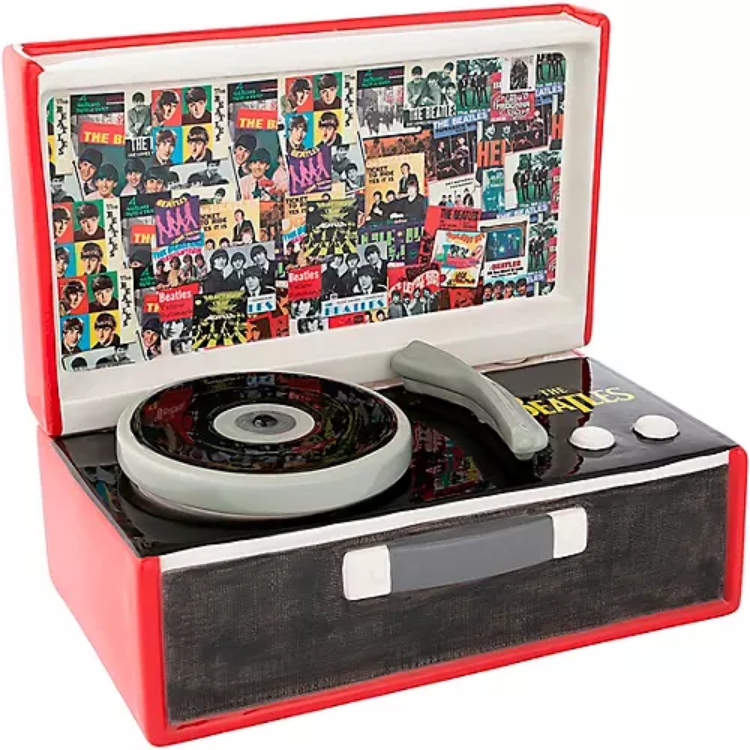- Register
- Log in to Tune-In
- Wishlist (0)
-
Shopping cart
(0)
You have no items in your shopping cart.
Beatles News

“Hey, that was a Beatles scream!” Paul McCartney said, responding to a female audience member’s shriek midway through his exuberant surprise concert at New York’s Bowery Ballroom on Tuesday night. “Okay girls, let’s get it over with,” he mock-sighed. “Let’s hear your Beatles screams.”
A huge percentage of the audience complied, producing a credible impersonation of the shrieks that shook the world in 1964 while McCartney listened, then nodded in approval and said, “OK that’s enough.” While some would have basked in the moment, Sir Paul has probably heard enough screaming in his 83 years to burst a thousand eardrums.
But for the lucky people in the room, it was a night worth screaming over: Seeing Paul McCartney and his ace band play a 575-capacity venue that later in the month is hosting shows by such artists as Bartees Strange, Willow Avalon and Jesse Welles. The show was announced suddenly at noon, with no advance warning:
And at 6:44 p.m. on the nose, the band — led by McCartney — walked down the narrow stairs leading from the Bowery dressing room to the stage and launched straight into “A Hard Day’s details

On This Day, Feb. 11, 1964 …
The Beatles played their first show in the U.S. at the Washington Coliseum, performing 12 songs, including “I Want To Hold Your Hand,” “She Loves You” an “Twist and Shout.”
Thousands of screaming fans showed up for the concert, which resulted in over 350 police being dispatched to the show.
The Beatles played their show in the round and wound up pausing the concert several times to turn Ringo Starr’s drum riser so everyone in the audience got a chance to see him.
The concert, held two days after the band made their TV debut on The Ed Sullivan Show, was filmed and telecast in U.S. theaters that March.
Source: wxhc.com/Jill Lances
details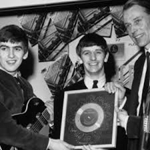
The Beatles had a lot riding on their debut single in the early 1960s. Would the band make a decent first impression or be doomed to be nothing more than a house band for dark, dank clubs across Europe? The music they recorded at EMI Studios had the potential to elevate them from local Liverpudlian heroes to international stars. Of course, plenty of bands have successfully come back from a poorly received debut. But would such a comeback be possible for a relatively unknown band from northern England?
Even with their countless hours of stage time under their belt, the Beatles were facing an obstacle they had never before encountered. Unsurprisingly, the band had strong feelings about which songs did—and didn’t—meet their necessary criteria for a successful debut single.
In the early 1960s, shopping for songs in Tin Pan Alley was a far more common practice than bands releasing original material. But as history would show time and time again, the Beatles were anything but ordinary. The songwriting partnership of John Lennon and Paul McCartney was well underway. And that’s what the band wanted to highlight with their first singles. So, the band voted for an original they felt had details

John Lennon, born on October 9, 1940, in Liverpool, England, was a legendary singer, songwriter, and peace activist who co-founded the iconic rock band, The Beatles. He was a pivotal figure in the music industry and became one of the most influential and celebrated musicians of the 20th century.
In the early 1960s, along with Paul McCartney, George Harrison, and Ringo Starr, John Lennon formed The Beatles, a band that would revolutionize popular music and become a cultural phenomenon. As the primary songwriter and co-lead vocalist of the group, Lennon’s creative contributions were instrumental in shaping their sound and style.
The Beatles’ massive success and unprecedented fame brought Beatlemania to the world, influencing an entire generation and changing the landscape of popular music forever. Some of Lennon’s most iconic compositions for The Beatles include “Imagine,” “Strawberry Fields Forever,” “A Day in the Life,” and “Let It Be.”
In 1969, John Lennon married artist and musician Yoko Ono, and the couple became known for their activism and advocacy for peace. Their “Bed-In” events, peace protests, and iconic song “Gi details

Laraine Newman still remembers the moment she realized “Saturday Night Live” had staying power.
In the earliest days of the show, she “had no idea who was watching” the sketch comedy series, Newman said during a visit to the 3rd hour of TODAY on Feb. 10.
However, one chance celebrity encounter in the lobby of 30 Rock, where the show is filmed in New York City, completely changed that.
“Out of my peripheral vision I see these forms, and they come into focus and it’s John (Lennon) and Yoko (Ono),” she said.
“And as John’s passing he goes, ‘Hi, Laraine,’” she added, using a British accent for effect.
“Not ‘hi,’” she emphasized. “‘Hi, Laraine.’”
That name-check was "an inkling” of the show’s success, she said.
Newman, 72, was one of the original “SNL” cast members who launched the show in 1975, along with comedy legends such as Dan Aykroyd, John Belushi, Chevy Chase and Gilda Radner.
Some of her most memorable characters on the show include the teenaged Connie Conehead and public access TV host Christie Christina.
When details

The Beatles put out some of the best music of the 20th century. However, even the Fab Four were capable of having a few musical and technical hiccups. Let’s dive into a few Beatles songs that feature hidden mistakes that you may have never noticed before!
1. “I’m Looking Through You”
By the time Rubber Soul rolled around, The Beatles had refined their recording techniques and performance ability. However, there is still a mistake in “I’m Looking Through You” that made it to the final cut. In fact, there are a few mistakes.
There’s a bit of guitar feedback at the 1 minute 18 seconds mark, as well as a guitar part that is out of tune at 1 minute 53 seconds. Ringo Starr missed a couple of drum hits at 1 minute 57 seconds, too. For an otherwise polished album, “I’m Looking Through You” is a pretty messy song when you really listen to it.
2. “Hey Jude”
“Hey Jude” is an incredibly beautiful song. However, it does make it to our list of Beatles songs with hidden mistakes for one particularly glaring reason: There’s a naughty word hidden in the mix.
It’s not clear who shouted “F***ing hel details
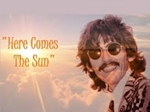
Is 'Here Comes The Sun' the most popular Beatles song of modern times?
If you include 'Now and Then', The Beatles recorded a total of 213 different songs. 25 of them were covers of rock 'n' roll classics, pop standards and country hits. The bulk of the other 188 were compositions by the immortal songwriting team of John Lennon and Paul McCartney.
Alongside a trio of curios with full band co-writes – namely Let It Be's 'Dig It' and 'Maggie Mae' and Magical Mystery Tour's 'Flying' – George Harrison wrote just 22 of the songs officially released by The Beatles.
But if you go on to Spotify and look up The Beatles and look at their top ranked songs, one track is way out in front of all the others.
'Here Comes The Sun' has racked up over 1.5 BILLION listens in the ten years since The Beatles belated came to the platform.
John Lennon's 'Come Together' is languishing in second place with a mere 811 million spins. Read on to find out how this not-even-a-single became such a hit. Who wrote 'Here Comes The Sun'?
We just made a big song and dance about the song being one of George Harrison's, but you do have to be careful with songwriting credits.
S details
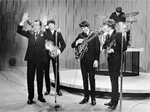
On Feb. 9, 1964, the Beatles made their first live American television appearance on “The Ed Sullivan Show,” broadcast from New York on CBS. The quartet played five songs, including “She Loves You” and “I Want to Hold Your Hand,” to a crowd of screaming teenagers in person and more than 70 million viewers across the country.
Source: courant.com
details
About the track, Paul said: "It’s really just a love song, but it’s brilliantly done"
English musician and songwriter Paul McCartney of The Beatles attends a press conference to promote Leicester University's arts festival at the Royal Garden Hotel in London on 5th February 1968
Paul McCartney has written more than his fair share of classic songs. Alongside John Lennon, Paul, now 82, wrote the bulk of The Beatles' songbook and was the driving force behind beloved tracks like 'Let it Be', 'Yesterday', 'Hey Jude' and 'Penny Lane'.
About the Lennon-McCartney songwriting partnership, Music and Musicians magazine's Wilfred Mellors wrote in 1972: "Opposite poles generate electricity: between John and Paul the sparks flew. John's fiery iconoclasm was tempered by Paul's lyrical grace, while Paul's wide-eyed charm was toughened by John's resilience."
Paul and John set the standard for songwriting in the 1960s, inspiring many of their peers. About their 1964 arrival in the United States, Bob Dylan said: "They were doing things nobody was doing. Their chords were outrageous, just outrageous, and their harmonies made it all valid. But I just kept it to myself that I really dug them.
"Everybo details

A legendary performance featuring John Lennon, Yoko Ono, and guitarist Chuck Berry has reignited discussions online.
Some hailed the live show from the trio, which has recently gone viral again on social media, while others couldn't help but chuckle at Ono's vocal outbursts.
Their rendition of iconic guitar tunes was peppered with Ono's unique contributions, leading to a divide among viewers: some applauding her artistry, whereas others resort to ridicule.
An edited video from the @historyrock account suggested that Ono "embarrassing" Beatles legend Lennon, alongside rock icon Berry, exacerbated discussions.
A fan pointed out that the viral clip was edited for comic effect, stating: "You should mention that this video has been digitally altered and edited for comedic effect. Yoko Ono is only heard for about three seconds in the actual performance."
Music enthusiasts jumped to Ono's defence, praising her historical influence. Despite clarifications, the debate persists as viewers either praise or disparage Ono.
One individual commented: "It was a miracle that Chuck Berry could even play with that rattling his ears. Thankfully a wise tech shut off her microphone."
details
The Beatles penned hit after hit, all of which demonstrated their mastery of the songwriting form. But while they racked up classic songs for themselves beyond counting, they still found the time to write songs for other musicians.
Not everyone was aware that the song they were hearing on the radio had been written by John, Paul, George, or Ringo, especially if the song had been credited to a pseudonym. Here are some examples of songs that were recorded by other artists but dreamed up by the world’s favorite Liverpudlians.
1. "I Wanna Be Your Man" by The Rolling Stones
1963
Written by John Lennon and Paul McCartney, this song became one of The Rolling Stones' early hits. In fact, it was such a good tune that Lennon and McCartney borrowed it back so they could record their own version of it on their 1963 sophomore album, “With the Beatles.”
2. "Come and Get It" by Badfinger
1969
Written and produced by Paul McCartney, this song became a top 10 hit for Badfinger, a band signed to the Beatles’ Apple label. The band had several big hits of their own, so they didn’t necessarily need Macca to write material for them. But hey, when you’re signed to t
details
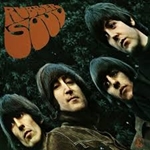
Another engaging review of a Beatles album. Still details I didn't know! And challenging interpretations. Rubber Soul and Revolver are indeed their most interesting album titles (if only Abbey Road would have been called Everest..)
I really like Wait (lesser overplay helps) but The Word is definitely one of my favourite Beatles tunes. It's so out there, like a mad religious (sect) leader screaming its selling points and all. Way more interesting than the by-request "All You Need Is Love" (perfect as it is, of course), a bit out of place here, even.
I like What Goes On amongst Ringosungs. The instrumentation in this album in general is really my thing. Power pop should I call it? Folk rock (apparently that's what they label the US version)?
I never liked Nowhere Man a lot, as important as it is, for some reason (I highly prefer "There's a Place" as an *almost* non love song, at least "that" line). You Won’t See Me is a favourite too, and yeah I cannot listen to Michelle anymore (but still I can bear it more than Yesterday, specially in the album context). John's and George songs are all great for me too.
Source: George Starostin/onlysolitaire.substack.com
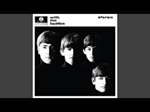
When you’re part of the biggest rock band of the 20th century, it’s pretty easy to get sick of at least a few of your biggest songs. For most of the members of The Beatles, quite a few songs in their discography were worthy of being hated from the get-go. Let’s take a look at just a few songs that The Beatles produced and famously hated!
The Meaning Behind the WEIRDEST Beatles Song, “I Am The Walrus”
1. “Birthday”
Paul McCartney was inspired to pen this classic rock track after watching the 1956 film The Girl Can’t Help It. “Birthday” ended up making it to the third side of The Beatles’ White Album. McCartney, interestingly enough, spoke fondly of the song in later years. John Lennon, however, was not a fan of the song at all.
“‘Birthday’ was written in the studio,” said Lennon. “[…] I think Paul wanted to write a song like ‘Happy Birthday Baby’, the old ’50s hit. But it was sort of made up in the studio. It was a piece of garbage.”
2. “Little Child”
The Beatles hated mostly their throwaway songs, but this one was more neglected and unres details

John Lennon played a rare live show in New York City.
John Lennon is one of the greatest songwriters and performers of all time.
He also was an experienced live performer, racking up 1,500 odd shows first with The Quarrymen and then The Beatles.
But The Beatles quit touring after a final show in Candlestick Park, San Francisco, only playing live once more on the roof of Apple HQ during the fractious Get Back sessions.
When John Lennon went solo after the breakup, it seemed as though he'd lost his taste for live performance. Despite releasing six studio albums during the 1970s, Lennon didn't go on a proper tour. In fact, Lennon barely played live at all after The Beatles. His only full-length shows came on August 30, 1972.
On that date, Lennon and Yoko Ono performed two sets at Madison Square Garden in New York City for the One to One Concert. They were backed up by the Plastic Ono Band with Elephant's Memory and Special Guests.
Some of the songs from the first set were available on the much-maligned Some Time in New York City album, but many of the performances from that momentous day have never seen an official release.
Source: goldradio.com/M details

Berry and the team at Selby created an exhibition to celebrate Harrison’s love for nature and music. It’s an exhibit set to open on Feb. 9 called George Harrison: A Gardener’s Life.
After his time with the Beatles, George Harrison lived on a country estate in England and continued to write music.
But there developed another passion for gardening.
“It sort of makes sense. You can see the prevalence of garden imagery on album covers, videos, and even references in his songs,” said David Berry, chief museum curator at the Marie Selby Botanical Gardens.
Berry and the team at Selby created an exhibition to celebrate Harrison’s love for nature and music.
It’s an exhibit set to open on Feb. 9 called George Harrison: A Gardener’s Life.
“It’s wonderful to celebrate his life and legacy and then to tell an aspect of his story that is a little less familiar to most people,” said Berry.
Selby CEO Jennifer Rominiecki says her family actually told her about George’s connection to gardening.
“I did not know that he was such a significant gardener. We are all Beatles fans. And in details

